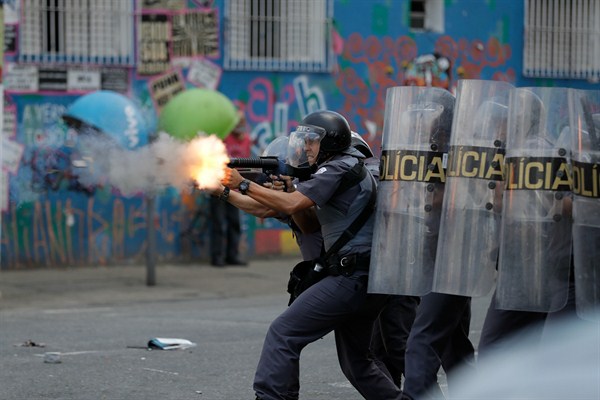Last month, police in Brazil’s southeastern state of Espirito Santo went on strike over pay and working conditions, creating a security vacuum that allowed for widespread violence and looting. The police reported 143 killings over a 10-day period, and the government deployed federal troops to stave off further violence in advance of Carnival celebrations at the end of February. In an email interview, Dennis Pauschinger, a sociologist and expert on Brazil’s security sector based at the University of Neuchatel in Switzerland, discusses how the crisis speaks to larger problems plaguing Brazil’s security sector.
WPR: What are some of the factors that gave rise to the strike, and to what degree are they local issues or reflective of broader issues facing the country’s police forces?
Dennis Pauschinger: First of all, it is important to take into account the police structure in Brazil. Basically, there are three main police forces: a federal police force that investigates federal crimes across state borders; military police for each of Brazil’s 26 states that are responsible for the repression and prevention of crimes; and civil police that investigate crimes. They are distinct institutions that have their own rules and working traditions. Most importantly, the military police is normally responsible for making arrests, while the civil police force is a civilian organization responsible for initiating the judicial process when someone is arrested.

